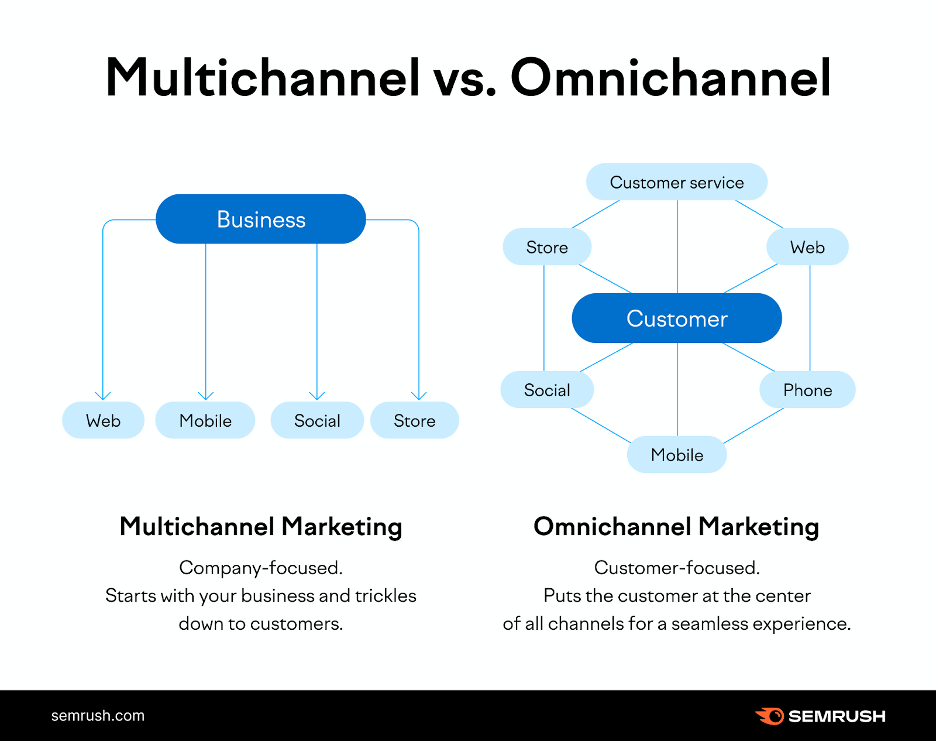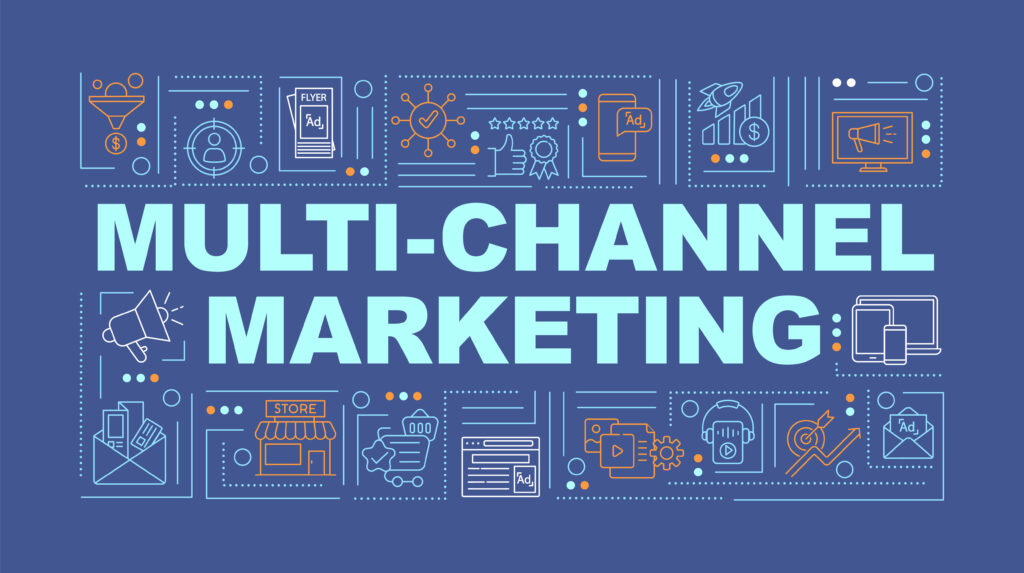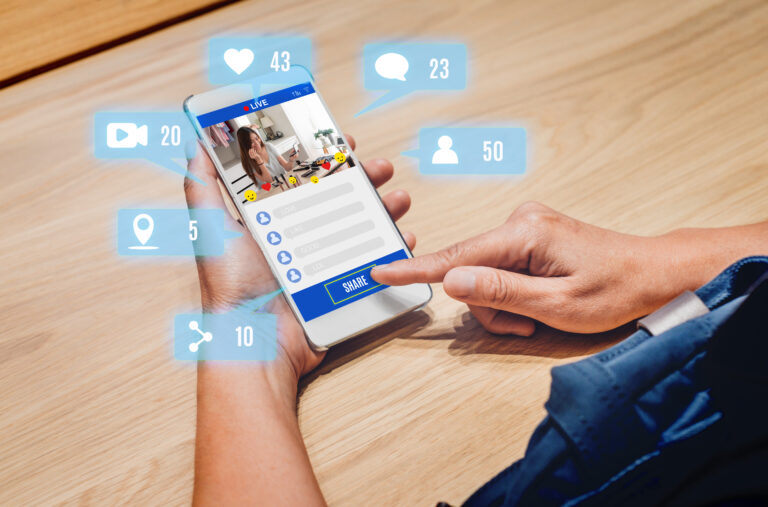The only thing constant in the world of marketing is change. As society evolves, marketers must learn to adapt and find ways to reach customers and make their brand stand out in a world inundated with advertising. Best practices become bad habits, what’s efficient becomes slow, and a unique approach may become trite and boring in just a matter of months.
At Snapshot Interactive, we stay at the forefront of digital marketing trends so that you don’t have to. In today’s ever-evolving landscape, where consumers are more connected and empowered than ever before, it’s crucial for businesses to adapt their marketing strategies accordingly. We’re here to help you at every step.
Multichannel marketing is still one of the best ways to create customer connections with your brand, better understand your customer base, create more conversions, and enhance your engagement — no matter how much the world changes. As we move closer to the end of Q1, let’s look at how to best put it to use in 2024 and why it continues to hold such strong importance.
What Is Multichannel Marketing?
Multichannel marketing uses multiple content channels to promote a product under one strategy, using the strengths of each channel to share the product’s message or key value with the audience. Channels could include landing pages, email, social, display, or more traditional media types like broadcast, out-of-home, and direct mail. Conventional and digital multichannel marketing strategies reinforce your product’s significance at multiple touchpoints, creating a stronger connection to the customer. It’s about ensuring your message is present where your audience is, whether that’s through social media, email, search engines, or even traditional channels like print or television.
Multichannel vs. Omnichannel Marketing:
Before we jump in too far, let’s clear one thing up: Multichannel marketing campaigns are different from omnichannel strategies, although they’re often confused as synonymous. While both involve engaging with customers across various touchpoints, the key difference lies in the level of integration and messaging consistency. Omnichannel aims for a seamless, unified experience across all channels, whereas multichannel operates more independently across channels.
Omnichannel vs. Multichannel Marketing Key Differences:
The focal point of your strategy is the biggest difference between the two approaches. As discussed earlier, multichannel marketing is product-centric, aiming to show the value of your product in as many channels as possible. In contrast, an omnichannel approach creates a holistic experience by connecting each channel to provide a cohesive experience for the customer.
Unlike multichannel marketing, an omnichannel approach creates a holistic experience that connects each channel to serve up one coherent experience for the audience. With a multichannel strategy, you use multiple channels, but they might not be connected. Omnichannel marketing is a more comprehensive version of multichannel marketing.

Credit: Multichannel Marketing: How to Do It Right + Examples
Benefits Of Multichannel Marketing
There are more mediums to reach customers than ever before. Taking a multichannel approach can help you connect with more people, create stronger connections between your company and the customer, and give you more flexibility in a fast-paced marketing landscape. The average consumer will interact with a brand across multiple channels every single day. Google found that 95% of customers will use more than one channel when making a purchasing decision, and a Salesforce survey revealed that 72% of consumers and 89% of business buyers think brands should understand their unique needs and expectations across multiple channels.
Creating a sound multichannel marketing strategy is imperative if you want your brand to relate and resonate with customers, and ultimately, drive conversions and sales.
Benefits Of A Multichannel Marketing Strategy:
- Increased Reach: By diversifying your channels, you can expand your reach and connect with a broader audience. For example, Semrush notes that while 40% of baby boomers watch cable TV, Gen Z watches three times as much streaming content. You can hit both incredibly different markets (if you need to) by tailoring your message for each of these channels. Being present on various platforms increases brand visibility and reinforces brand awareness.
- Enhanced Engagement: Engaging with customers through multiple channels increases the likelihood of capturing their attention, driving a conversion, and creating a stronger connection between you and them. Tweaking and adjusting your messages for specific channels improves engagement rates by showing the customer a message in the most seamless way possible, perfectly tailored for the platform they’re using. For example, Instagram is great for visually-appealing posts while professional messaging is better on LinkedIn.
- Lower Your Time To Conversion: It typically takes six to eight interactions with a brand before a customer buys something. If you’re in multiple channels, you can lower the timeframe to hit that conversion threshold. If a customer sees your brand multiple times, they start to grow more familiar with you and are more receptive to making a purchase.
- Better Data Insights: Utilizing multiple channels provides richer data insights and allows for more informed decision-making and targeted campaigns. This helps you more confidently adjust your marketing spend, determine which channels are more cost-effective, and which ones aren’t working at all.
- More Adaptable Marketing: In a fast-paced digital landscape, multichannel marketing offers flexibility and adaptability to changing trends and consumer behaviors.
- Better Understanding Your Customer: By using a multichannel marketing approach, you can better understand your customers and deliver a tailored, personalized experience that further resonates with them. This will help you target them more effectively in the future.
Crafting Multichannel Marketing Campaigns
Creating effective Multichannel Marketing campaigns requires careful planning and execution. You need to treat each channel individually, know who you’re talking to, and tweak each message for the specific channel. Here are some tactics to consider:
- Personalization: Tailor your message to suit the preferences and behaviors of your audience. Utilize data analytics tools to determine which multichannel marketing statistics are most important for you and dive into your target’s demographics and how they behave on the internet. AI-driven insights are also a great tool that can help you deliver personalized content across channels.
- Emphasize Every Channel: Not all channels are created equal. Research what works best for each one and tailor your message accordingly. Also, just because a channel is available doesn’t mean you should be using it. Look at what makes the most sense for your brand or product.
- Develop A Strong Content Strategy: Create a robust content strategy that aligns with your overall marketing objectives. Consistency in messaging across channels is key to maintaining brand integrity and resonance with your customers. This is especially important with multichannel digital marketing. Customers are exposed to 6,000 to 10,000 ads per day, so you need to make sure what you’re saying resonates. Even though the marketing strategy will vary by platform, the message should stay consistent throughout.
- Focus On Customer Service: Streamlining your customer service is essential for creating a pleasant customer experience, but it can be tough when implementing a multichannel marketing strategy. Using a chatbot and only using real-life support reps as a last resort is a great way to ensure that customers don’t have to constantly repeat the same information.
- Harness The Power Of Voice: Passive Secrets notes that smart speakers and voice assistants are becoming increasingly more popular in the purchasing process. Twenty-six percent of customers that own smart speakers have used them to buy something, and 40% of consumers have used them for consumer-related purposes. Developing content for voice assistants and smart speakers is going to be crucial for the future of multichannel marketing.
Multichannel Marketing Hubs
Executing a sound multichannel marketing strategy requires incredible attention-to-detail and coordination across multiple content channels. That’s where multichannel marketing hubs (MMHs) come in.
MMHs are central platforms for managing and optimizing campaigns across various channels, streamlining processes, and maximizing ROI. They can help you develop a customer journey, analyze data, monitor performance, and determine next steps.
Programs like Salesforce Marketing Cloud, Adobe Marketo Engage, and MoEngage Customer Engagement Platform help brands streamline their communications and run multichannel marketing campaigns more efficiently, with fewer errors.
Here’s a rundown of MMHs to help you compare and start to determine what’s best for your company.
Conclusion
The importance of multichannel marketing in 2024 cannot be overstated. As consumer behavior continues to evolve with a changing media landscape, businesses must adapt their marketing strategies to remain relevant and competitive.
As we look ahead to the future, multichannel marketing will undoubtedly continue to play a pivotal role. With advancements in technology and data analytics, businesses have more tools at their disposal than ever before to create targeted, personalized experiences for their customers.
At Snapshot Interactive, we’re committed to helping our clients navigate the complexities of multichannel marketing campaigns by synchronizing their messaging, determining which channels will best serve them, and how we can help them achieve their goals. Contact us today to learn more about how we can elevate your brand through strategic, data-driven marketing initiatives and let’s make something amazing.
Sources:
Multichannel vs. omnichannel: What is the difference?
Multichannel Marketing: How to Do It Right + Examples
Omnichannel vs. multichannel: How to know the difference.
Multichannel Marketing: How to Do It Right + Examples
Gen Z viewers watch 3 times as much streaming content as live television
Frequency of watching cable television in the United States in 2022, by generation
Manage multi-channel marketing: Strategies for success
Multi-Channel Marketing For An Increase In Conversion Rates
How AI is Revolutionizing Digital Marketing
Multichannel selling: explanation, tips, and strategies for 2024
41+ Latest Multichannel Marketing Statistics & Trends For 2024
Beginner’s Guide to Developing a Robust Content Marketing Strategy
What is Multi Channel Customer Service? Benefits & Challenges
Multichannel Marketing Hubs (MMH) Reviews and Ratings
Make every moment count with Marketing Cloud.
Sizzling marketing automation and spicy leads. Let’s set your pipeline on fire.
THE FUTURE OF MARKETING: MULTI-CHANNEL STRATEGIES IN 2024








